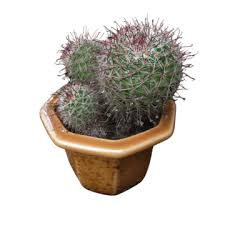The Feng Shui Significance of Foods During Holiday Celebrations: Nourishing the Body and Spirit

In Chinese culture, food is more than just sustenance—it is a symbol of prosperity, health, and harmony. During festive occasions, such as the Chinese New Year, Mid-Autumn Festival, or other cultural celebrations, food plays a significant role in both honoring traditions and inviting good fortune. In Feng Shui, a system that focuses on harmonizing the flow of energy (Qi) in our lives, food is viewed as a powerful element that can either enhance or block the energy within our homes and lives.
The concept of Feng Shui emphasizes the importance of maintaining balance in all aspects of life, and food is no exception. The foods prepared and consumed during special holidays are not just chosen for their taste or nutritional value; they are selected for their symbolic meaning and energetic properties. This article explores why food holds such great significance in Feng Shui during festive times, how certain dishes are believed to bring good fortune, and the role of food in ensuring harmony, balance, and prosperity in the household.
1. The Role of Food in Feng Shui and Its Cultural Symbolism
Feng Shui, an ancient Chinese practice, is based on the idea that everything in the universe is interconnected through the flow of energy, or Qi. This energy is influenced by our environment, actions, and even the food we consume. According to Feng Shui principles, each type of food has its own energetic vibration that can impact the household or the people eating it, either positively or negatively.
During major celebrations, such as Chinese New Year, the Mid-Autumn Festival, or weddings, food serves not just as nourishment, but also as a medium through which energy is channeled. It is believed that by choosing specific foods, individuals can invite good luck, improve health, promote abundance, and foster harmonious relationships.
Each dish prepared during these times is meticulously chosen to align with the principles of Feng Shui and its five key elements—Wood, Fire, Earth, Metal, and Water. By incorporating the correct foods, the energy of these elements can flow freely, ensuring balance within the environment.
2. Foods That Symbolize Good Luck and Prosperity
Certain foods are traditionally prepared and consumed during holidays and festivals because they are believed to bring good luck, wealth, and fortune. These foods have symbolic meanings deeply rooted in Chinese culture and Feng Shui.
1. Fish: Symbolizing Abundance and Wealth
In Chinese culture, fish is a common and highly significant dish during festive occasions. The word “fish” (yu) in Mandarin sounds like the word for “abundance” or “surplus,” symbolizing prosperity and the idea that wealth will “overflow” into the coming year. In Feng Shui, fish represents good fortune and an uninterrupted flow of positive energy.
- Preparation: Fish is often served whole, with the head and tail intact, symbolizing the completeness of the year and a continuous cycle of prosperity. In Feng Shui, the whole fish represents the start and end of a cycle, bringing the promise of wealth for the entire year.
- Types of Fish: Carp, tilapia, and pomfret are commonly served, as these fish have strong symbolic associations with good fortune and success. They are also believed to attract positive energy into the home.
2. Dumplings: Symbolizing Wealth and Family Unity
Dumplings (jiaozi) are another staple during Chinese New Year and other festive occasions. These little pockets of dough are filled with meat, vegetables, or sweet fillings and are shaped to resemble ancient Chinese gold ingots.
- Symbolism: The shape of dumplings signifies wealth, as they are thought to invite financial success and abundance into the household. In Feng Shui, dumplings are considered to attract prosperity and enhance the flow of positive energy related to financial well-being.
- Family Unity: Dumplings are also associated with family togetherness and harmony, making them an ideal dish to prepare during festivals that emphasize family connections.
3. Noodles: Symbolizing Longevity and Health
Noodles are an essential part of many traditional celebrations, especially during birthdays and New Year festivities. The long, unbroken strands of noodles symbolize longevity, vitality, and good health.
- Symbolism: In Feng Shui, long noodles are associated with a long, prosperous life. It is believed that consuming noodles during festive occasions can help invite longevity into your life and the lives of your loved ones.
- Preparation: Noodles are often served unbroken, emphasizing the importance of longevity and the continuation of family lineage. They are usually eaten on birthdays or the first day of the lunar new year to symbolize a long, healthy life.
4. Tangerines and Oranges: Symbolizing Good Luck and Happiness
Tangerines and oranges are symbolic fruits that are commonly found on festive tables during Chinese New Year and other holidays. The round shape of these fruits and their bright, golden color are associated with wealth and happiness.
- Symbolism: In Feng Shui, the color gold represents wealth, and the round shape symbolizes completeness and harmony. Oranges and tangerines are often given as gifts during the holidays as a symbol of good fortune and blessings for the new year.
- Placement: Tangerines and oranges are commonly placed in the home’s wealth corner (the southeast area), as they are believed to attract financial prosperity and happiness into the household.
3. The Importance of Balanced and Harmonious Meals
In Feng Shui, balance is key to creating a harmonious atmosphere. This principle extends to the food we consume, as meals should be designed to ensure harmony between the different elements, the Yin and Yang, and the five elements. Each dish should have a balance of flavors, colors, and textures, reflecting the concept of Yin-Yang balance, where opposites work together to create harmony.
1. Yin and Yang Foods
In Feng Shui, Yin and Yang are opposing forces that, when balanced, contribute to overall well-being. Yin foods are cooling and moistening, while Yang foods are warming and stimulating.
- Yin Foods: These include fruits, vegetables, tofu, and seafood. They are associated with refreshing, cooling energy and are perfect for hot weather or when the body needs to be calmed.
- Yang Foods: These include meats, spicy foods, and warm stews. They are used to invigorate the body, boost energy, and promote circulation, making them ideal during the colder months or during times of fatigue.
A balanced meal in Feng Shui would incorporate both Yin and Yang foods to ensure the body’s energy remains harmonized.
2. The Five Elements of Food
In Feng Shui, food is often categorized according to the Five Elements—Wood, Fire, Earth, Metal, and Water. Each element is associated with particular foods that can be used to bring balance and harmony into your life.
- Wood: Leafy greens and sprouts, which represent growth and vitality.
- Fire: Spicy foods, such as chili peppers, ginger, and garlic, which promote warmth and passion.
- Earth: Root vegetables, grains, and legumes, symbolizing stability and nourishment.
- Metal: White foods, such as garlic, onions, and radishes, which are beneficial for clarity and lung health.
- Water: Black foods, such as black beans, seafood, and dark leafy greens, which nourish the kidneys and promote relaxation.
Incorporating foods from each of the five elements into holiday meals is believed to bring balance and flow of positive energy.
4. The Timing of Meals and Their Feng Shui Significance
In Feng Shui, timing is an essential aspect of creating harmony and prosperity. Just as certain foods are prepared during specific festivals, the time at which meals are served and consumed also plays a role in their effectiveness in bringing about good fortune.
- New Year’s Eve Dinner: The reunion dinner on Chinese New Year’s Eve is one of the most important meals of the year. The meal is typically large and includes a variety of dishes, each symbolizing different aspects of good fortune—wealth, health, and family unity. This meal is believed to set the tone for the year ahead.
- Eating at Midnight: In many traditions, eating at midnight during Chinese New Year symbolizes ushering in the new year with good fortune. It is believed that the first meal of the new year will bring blessings for the months to come.
5. Conclusion: The Feng Shui of Food and Its Role in Holiday Celebrations
The foods we eat during holiday celebrations are far more than just traditional dishes; they carry deep cultural significance and Feng Shui meaning. By understanding the symbolic properties of these foods, we can align ourselves with the energy of the universe and invite prosperity, health, and harmony into our lives.
Through the careful selection of ingredients and the thoughtful preparation of meals, we can channel positive Qi and create a balanced environment that supports both personal and family well-being. Food, in Feng Shui, is a powerful tool for nurturing the body and soul, ensuring that we are in harmony with ourselves and the world around us.
The next time you prepare a holiday meal, remember that the dishes you choose are not just for nourishment, but also for promoting the flow of good energy, happiness, and success into your life.

